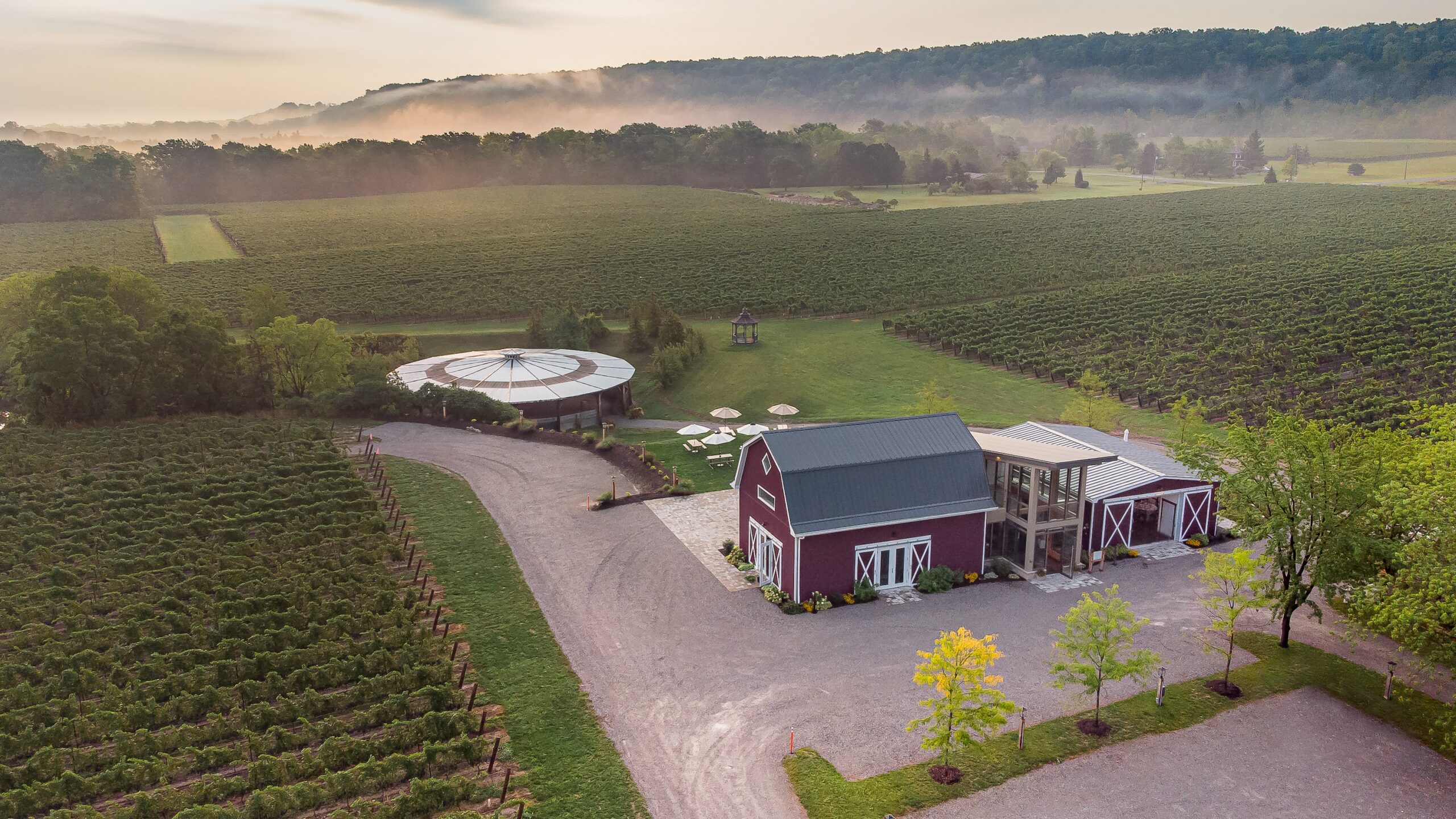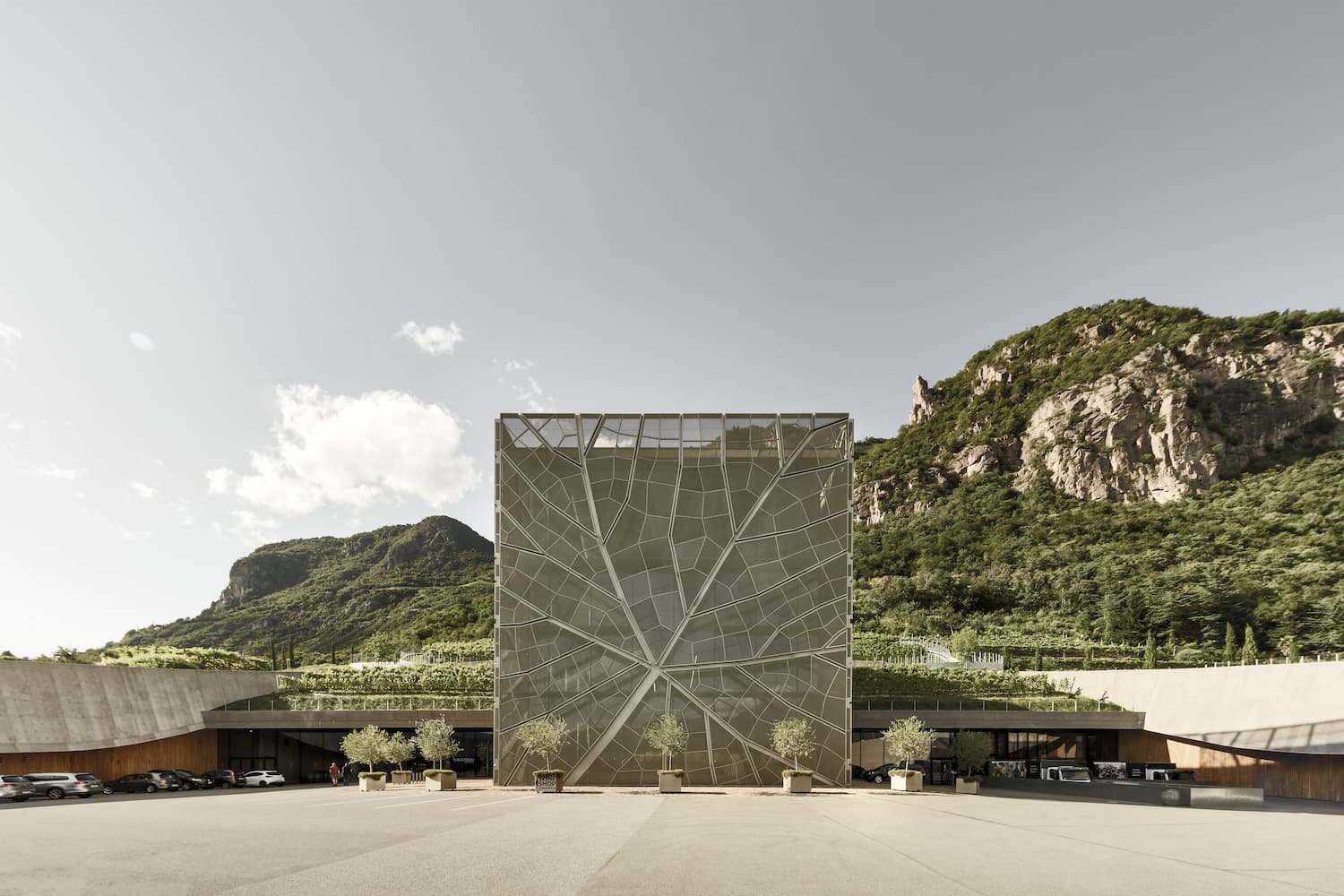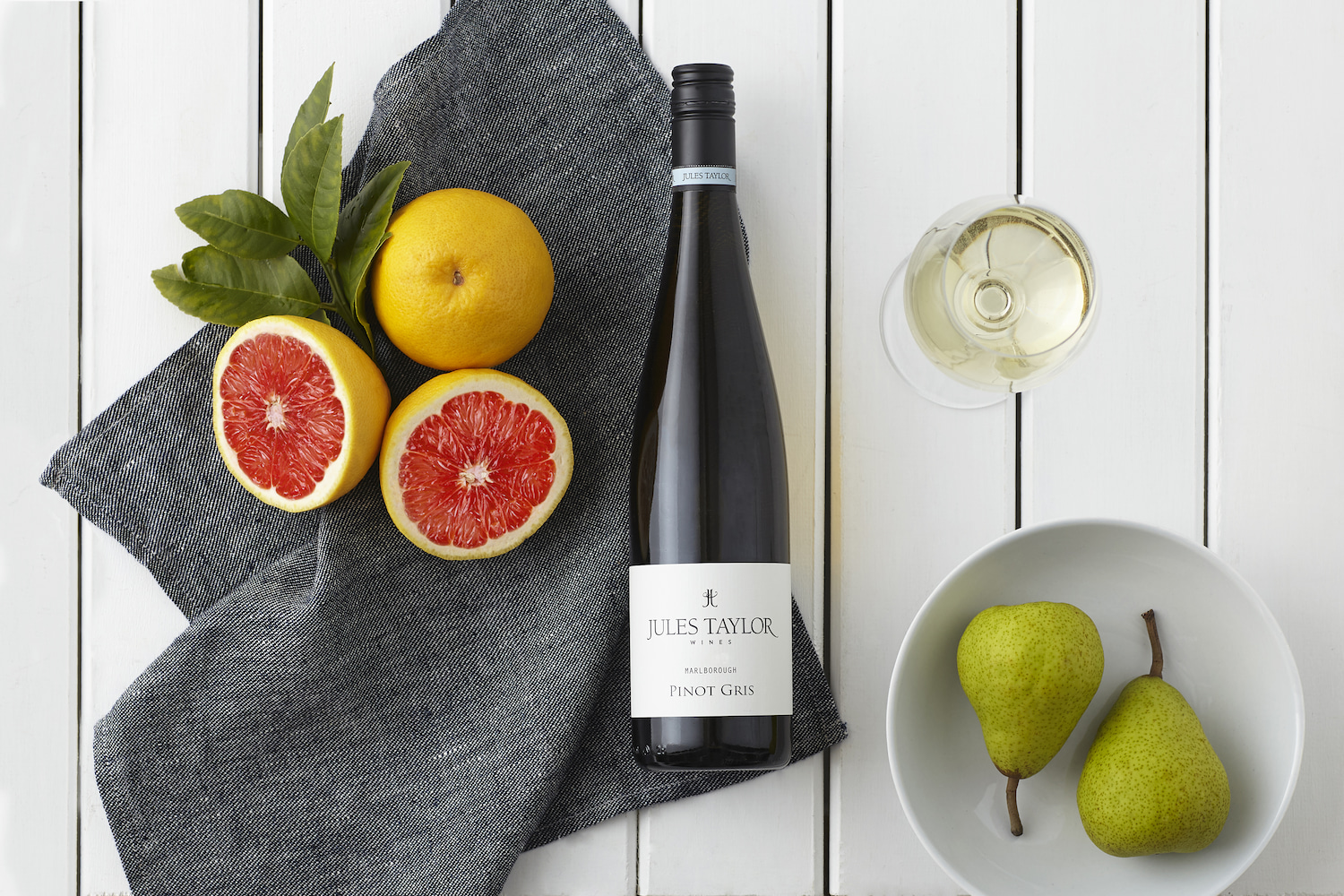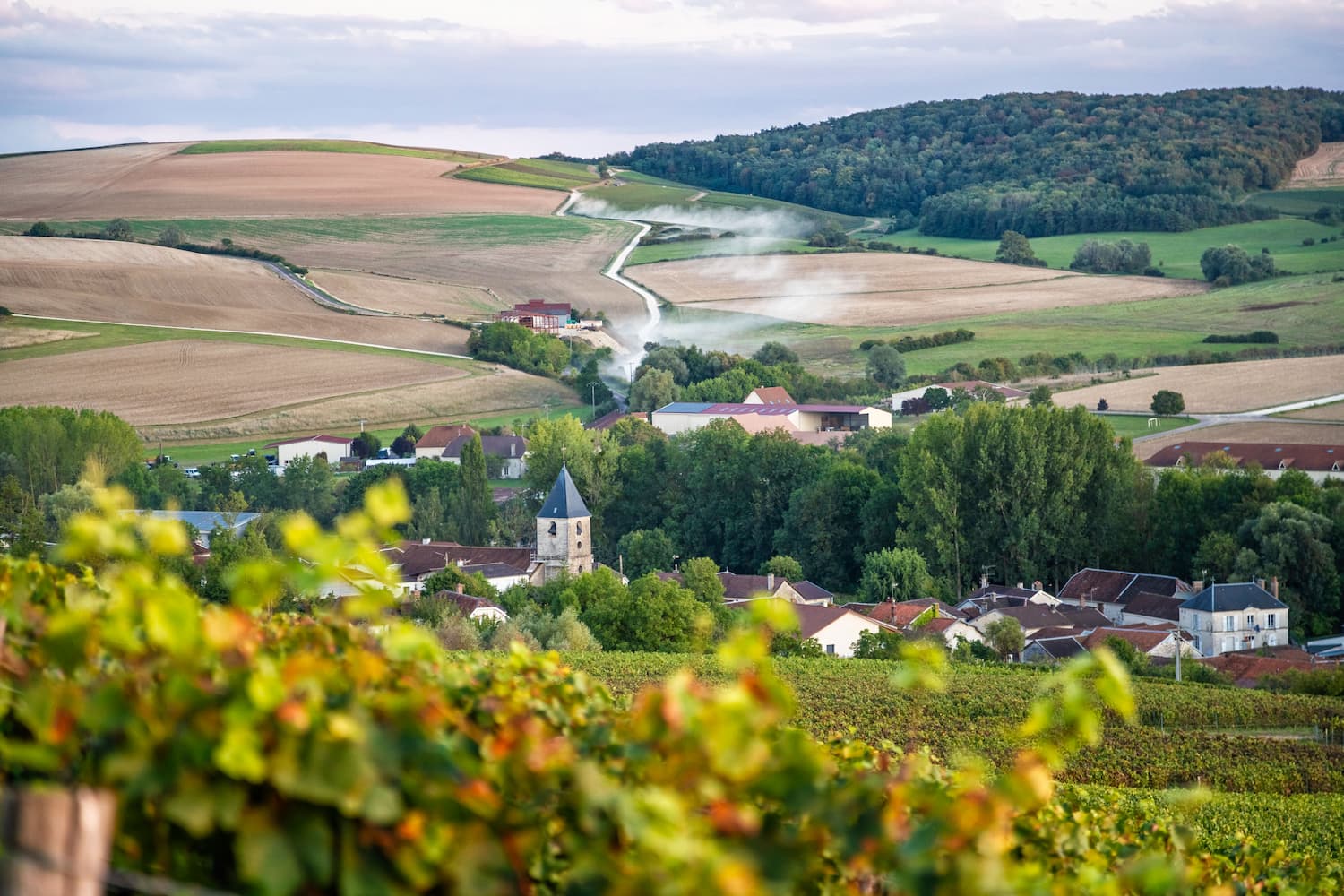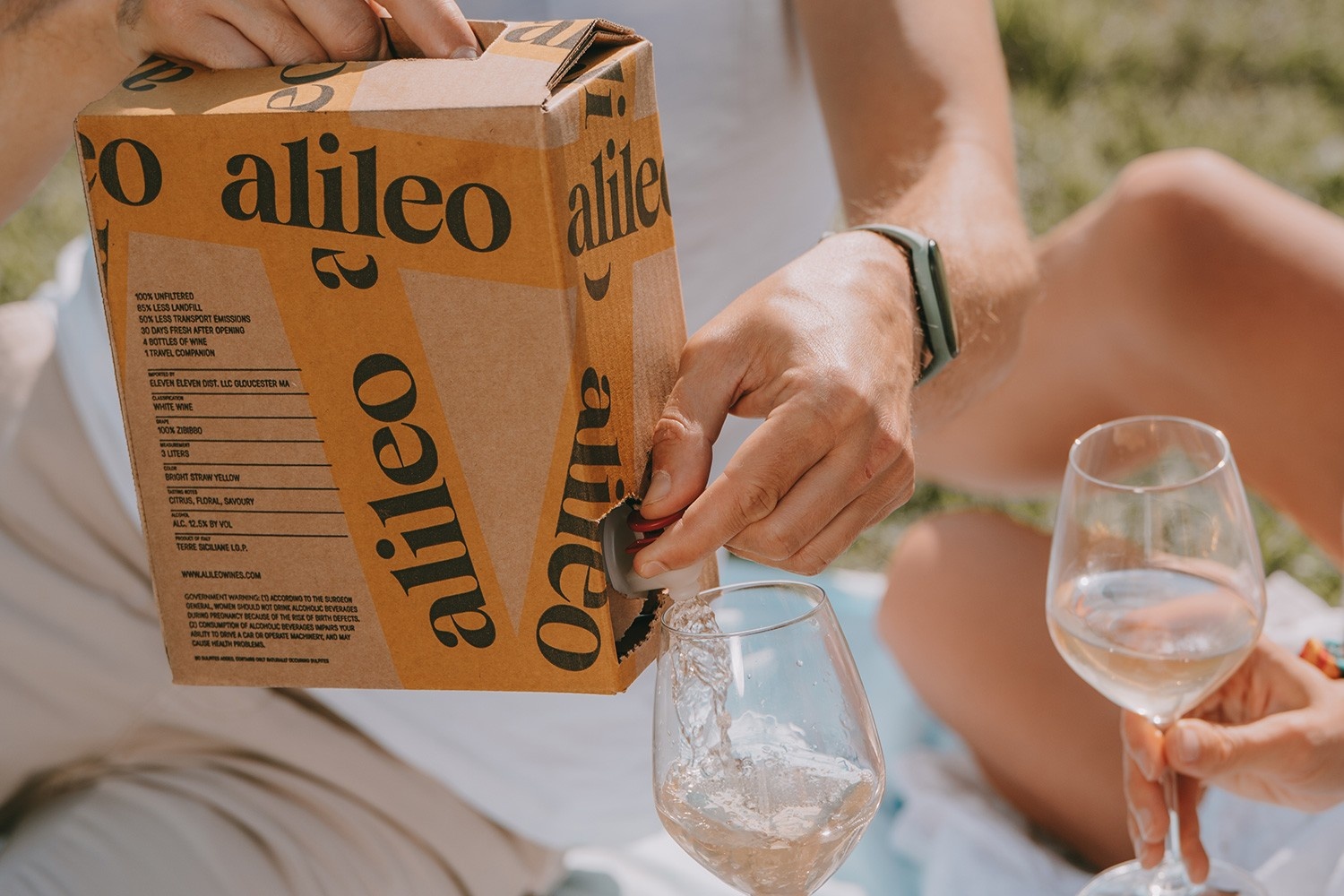“Driven by innovation, these wineries consistently push the boundaries to ensure their efforts have a lasting, positive impact.“
The Niagara Peninsula, Canada’s largest wine producing region, boasts around 100 wineries delineated by ten sub-appellations. Nestled along the shores of Lake Ontario, part of the world’s largest freshwater system, this area is celebrated for crafting exciting, food-friendly wines. Due to the cooler climate, growers find success with European varieties like Chardonnay, Riesling, Cabernet Franc, Gamay, and Pinot Noir, creating wines of restraint with moderate alcohol. While internationally known for their exquisite Icewine, Niagara’s still and sparkling wines now grab the world’s attention. Expect to be amazed.
Hot summers combined with cold winters create perfect conditions for vibrant wines but the climate also poses difficulties. Disease pressure, due to excessive rain and humidity, proves the major issue, making organic viticulture challenging. In fact, only a few wineries have organic or biodynamic certification. However, many wineries remain committed to the environment and have sought certification by the region’s third-party Sustainable Winegrowing Ontario.
Open all year, Niagara wineries welcome spontaneous visits for anyone seeking adventures in food and wine. Driven by innovation, these wineries consistently push the boundaries to ensure their efforts have a lasting, positive impact.
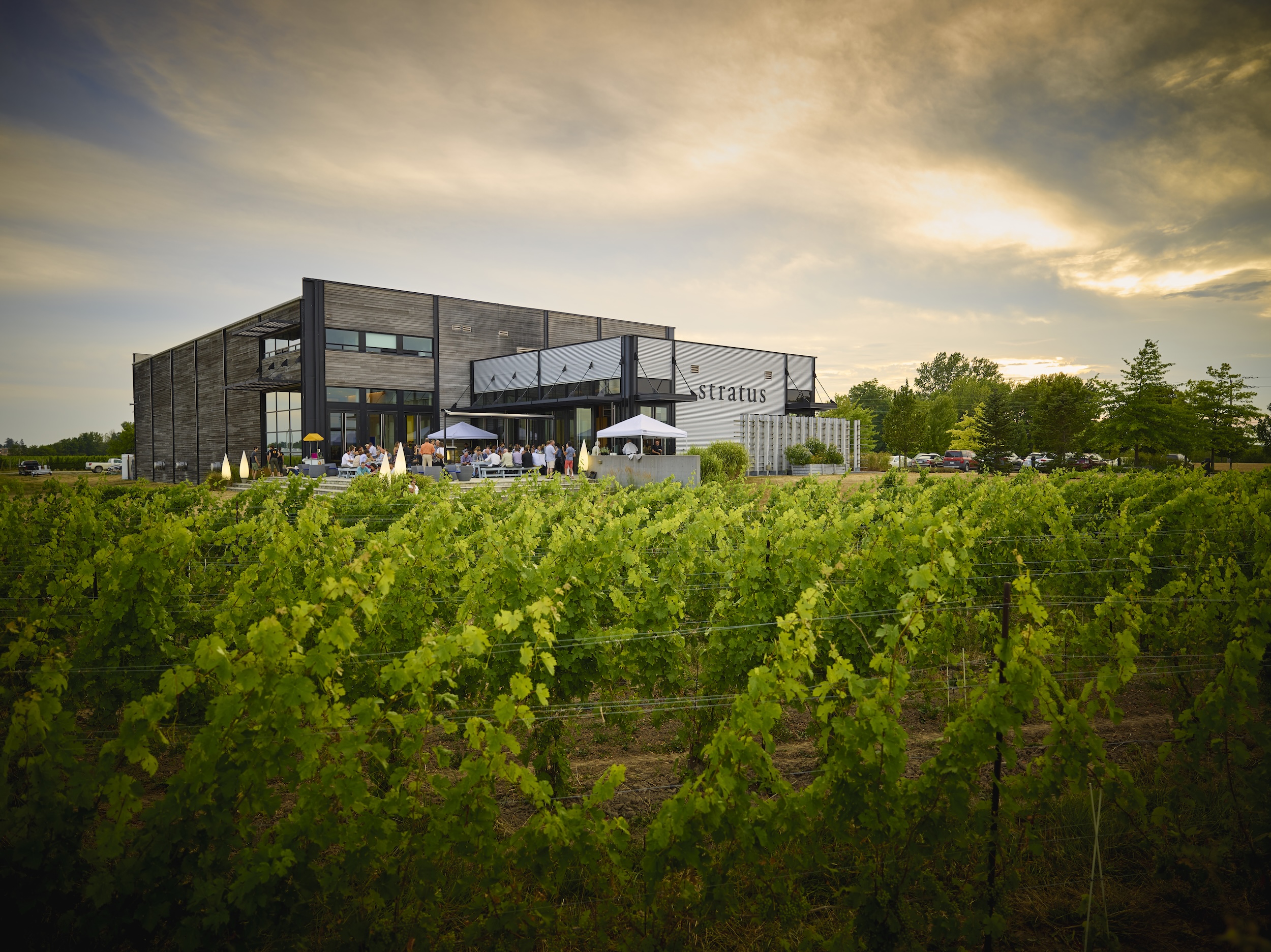
Stratus Winery. Image Courtesy of Stratus
Stratus, Niagara-on-the-Lake
Founded in 2000, Stratus Winery was built with the ambition of making super premium wine. Integral to that vision is a commitment to sustainability that is woven into every touchpoint of the winery. Architectural choices were essential to owner David Felberg (President & CEO of Teknion furniture), with function and form meshing with a greater purpose in mind. The sleek, black and gray building shimmers with floor-to-ceiling glass to let in natural daylight. The geothermal heating and cooling and gravity flow design contributed to Stratus’ recognition as the world’s first LEED (Leadership in Energy and Environmental Design) certified winery in 2005.
Outside, 16 varieties grow in 55 dry-farmed, herbicide-free acres. Innovative use of cover crops and biochar contribute to capturing carbon. Beyond the vineyard, in 2020, Stratus took action to further reduce its carbon footprint by moving most of their wines to lightweight glass bottles of less than 400g. Pushing to do even more, Stratus launched North America’s first commercial wine in a reused bottle on Earth Day this year. The red Field Blend, made with Petit Verdot, Malbec and Tannat, celebrates diversity and marks a path forward in the effort to reduce glass consumption in the wine industry. Innovative winery experiences like their Food & Wine Lab inspire guests to connect with local flavors. Stratus is a founding member of Sustainable Winegrowing Ontario.
Wines to Find: Cabernet Franc, White Label Chardonnay Amphora
Cave Spring Vineyards, Beamsville Bench
A pioneer of Canadian wine, Cave Spring Vineyards was founded in 1978 by the Pennechetti family and winemaker partner Angelo Pavan. Their prized contiguous vineyard of 130 acres is perched near the top of the Beamsville Bench sub-appellation, embraced by the Niagara Escarpment.
The Cave Spring Vineyard (CSV) has natural air flow that helps with disease pressure and new energy-efficient LED UV light technology helps eliminate weeds. Winemaker Gabe Demarco has transitioned all winemaking to wild ferments, reducing energy use. Cave Spring Vineyards is Canada’s first winery to isolate indigenous yeast in their vineyard and are soon launching a wine aged in concrete, barrique-style vessels crafted from local limestone.
An early adopter of lightweight glass, 99% of their wines are bottled in vessels less than 400 g. Solar power offsets 30% of total electricity and innovative wastewater treatment systems are integral in the winery’s sustainability mission. Cave Spring Vineyards supports endangered species and wildlife by providing bat boxes for Little Brown Bats, builds turtle platforms in vineyard ponds and welcomes barn swallows. With stunning views of Lake Ontario, tastings and picnics in the vineyards feature local cheeses and produce to support the community. A founding member of Sustainable Winegrowing Ontario, Cave Spring Vineyards were the first to be certified for both their vineyard and winery.
Wines to Find: CSV Riesling, Blanc des Blancs Traditional Method Sparkling
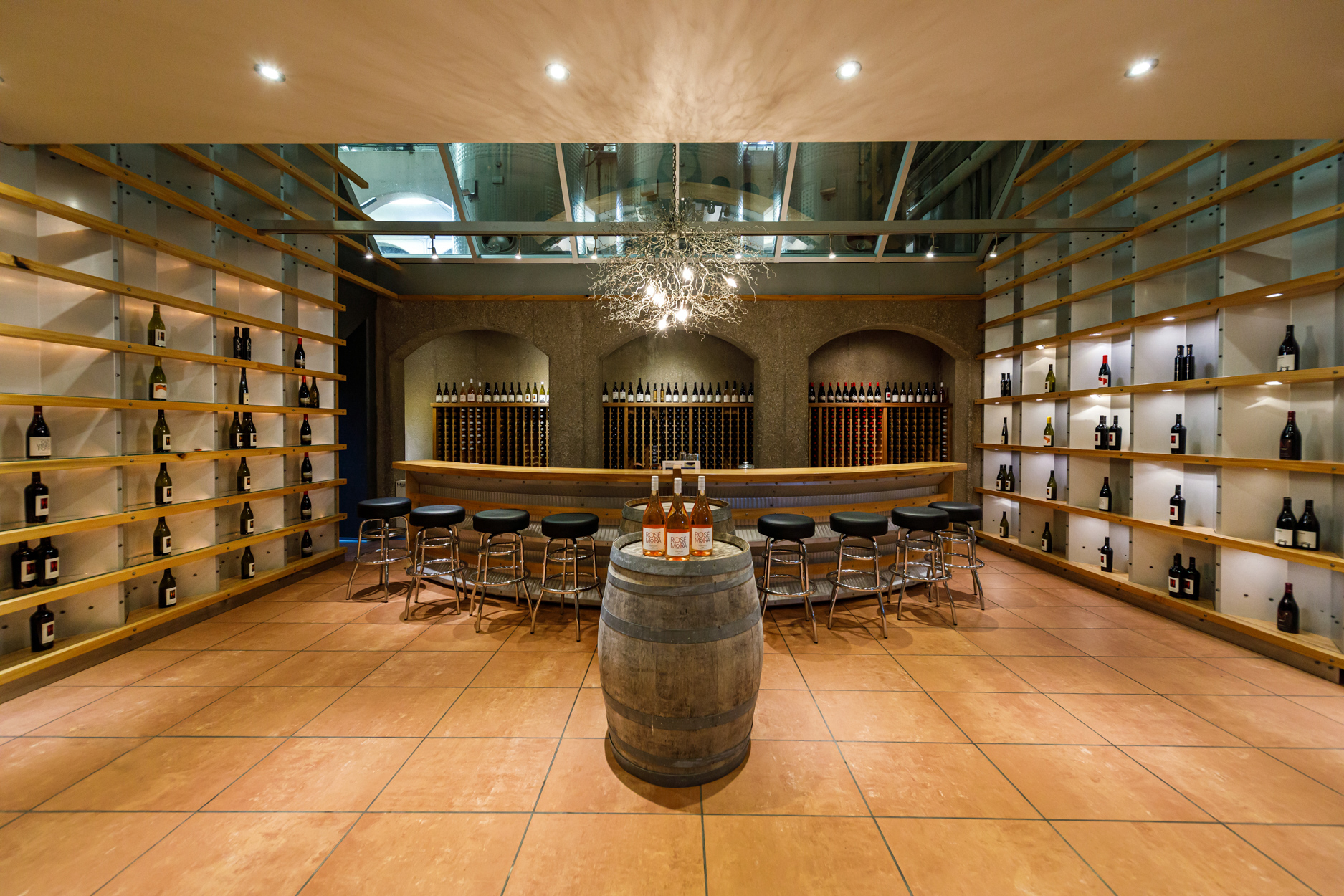
Malivoire Winery. Image Courtesy of Malivoire
Malivoire, Beamsville Bench
Martin Malivoire founded Malivoire on the premise of innovation and creativity. In his pre-winery career, Martin was one of Hollywood’s top directors of motion picture special effects. His talent for crafting and building contributed to the design of his winery. Malivoire’s discreet cellars are tucked into the slopes of the Beamsville Bench, almost hidden from view. Designed with upcycling in mind, reclaimed telephone poles were repurposed into patio columns and exterior concrete fermenters are made from locally sourced materials, the first in the region.
Planet, people and prosperity are the mantra but not without quality. Malivoire makes charming wines ranging from lively traditional method bubbly to complex Chardonnay, but it’s the Gamay that is their celebrity – a variety that is admired for its winterhardiness. The winery produces seven different Gamays and claims to be the largest estate producer of this varietal in North America. The winery’s vibe is fun and welcoming, expect hikes in the vineyards and yoga sessions at the foot of the Niagara Escarpment, a UNESCO World Biosphere Reserve. Malivoire is a founding member of Sustainable Winegrowing Ontario.
Wines to Find: Bisous Rosé NV Sparkling, Gamay ‘Le Coeur’
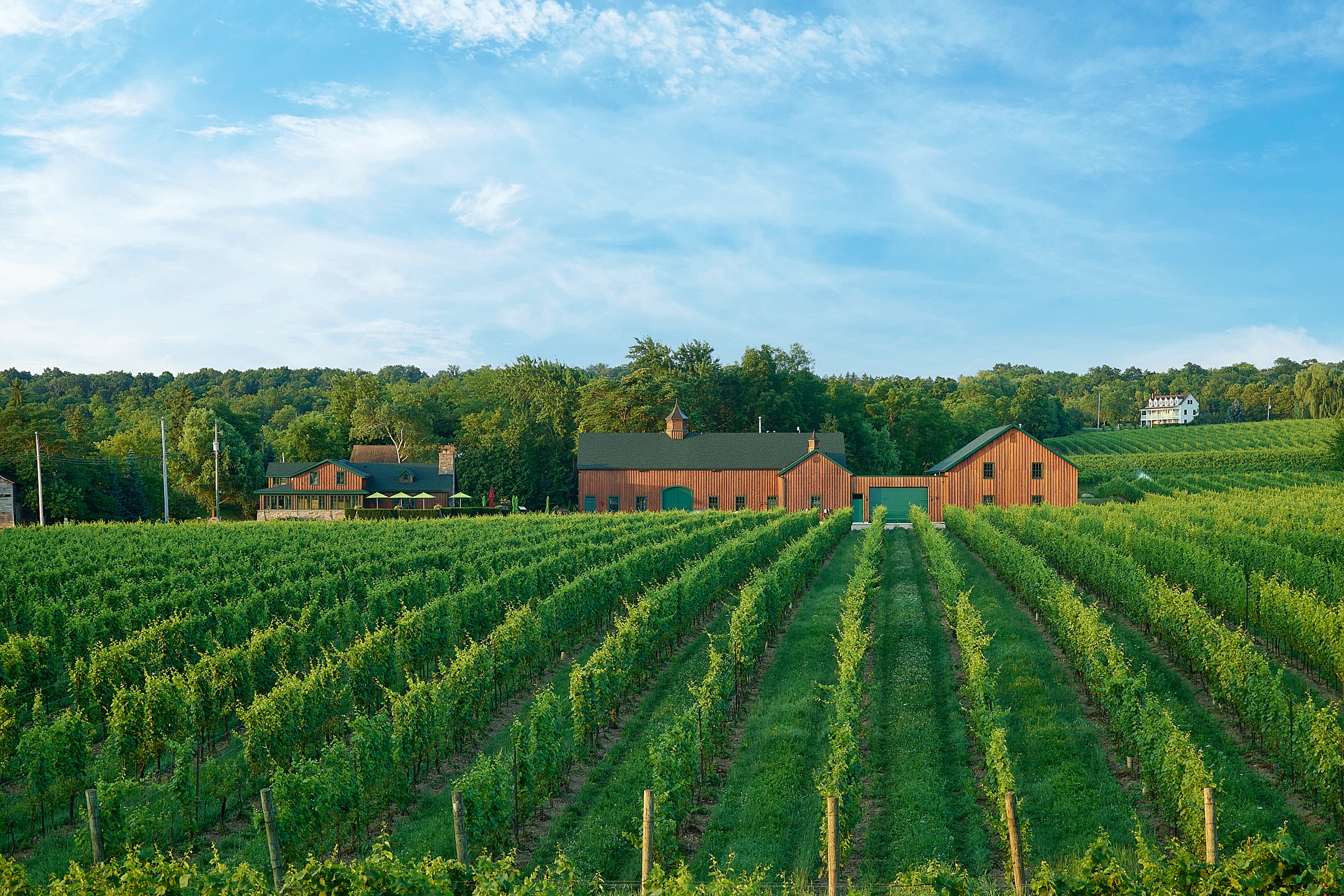
Hidden Bench Winery
Hidden Bench, Beamsville Bench
Nestled in the heart of the Beamsville Bench sub-appellation, Hidden Bench Estate Winery crafts wine from 100% certified organic estate fruit. Owner Harald Thiel has brought his dreams to life by producing elegant cool-climate wines with a focus on Pinot Noir and Chardonnay. He’s recently invested in Gamay, too, admiring how this variety excels in Niagara and fits serendipitously within the Burgundian inspired portion of his portfolio.
Since founding the winery in 2003, Hidden Bench contributes 1% to the Planet as a way to support environmental initiatives. Charitable donations are not enough, so the winery uses geothermal energy for heating and cooling and has solar panels to be energy cost neutral. A drive along Locust Lane while traveling to the winery shows off meticulously manicured vineyards, reflecting sustainable viticultural practices. Wine tastings and special events employ cheeses from Upper Canada Cheese, also owned by Thiel, which are hand-made in small batches from Guernsey cow and goat milk from local Ontario farms. Certified by Pro-cert Sustainable Winegrowing Ontario.
Wines to Find: Felseck Vineyard Chardonnay, Rosemel Vineyard Pinot Noir
Southbrook Vineyards, Four Mile Creek
Bill Redelmeier founded Southbrook Vineyards in 2004. The warm meso-climate and soil of the site welcomes Bordeaux varieties, setting the stage for producing classic European blends of Cabernet Franc, Cabernet Sauvignon, and Merlot. With deep farming roots, Redelmeier built the concept of his winery around green initiatives from the start. Southbrook is one of the few wineries in the region that is both certified organic and biodynamic and only purchases fruit from certified organic growers. The winery’s dramatic purple welcome center has gold level LEED certification.
Consumers can picnic in the vineyards, sipping on organic wines and vegan foods. Southbrook actively plants wildflower and pollinator plants around the vineyard for biodiversity. Milkweed supports Monarch butterfly populations – Niagara sits on their migratory path. Mixed cover crops of clover attract parasitic wasps that are natural predators of pests like leafhoppers. This helps eliminate insecticides. The broad portfolio of wines includes Vidal grapes, a hybrid variety best known for world-class Icewine. It’s also used at Southbrook to make a skin-fermented white wine (aka orange wine). Certified by Demeter and Sustainable Winegrowing Ontario.
Wines to Find: Skin Fermented White, Laundry Vineyard Pinot Noir
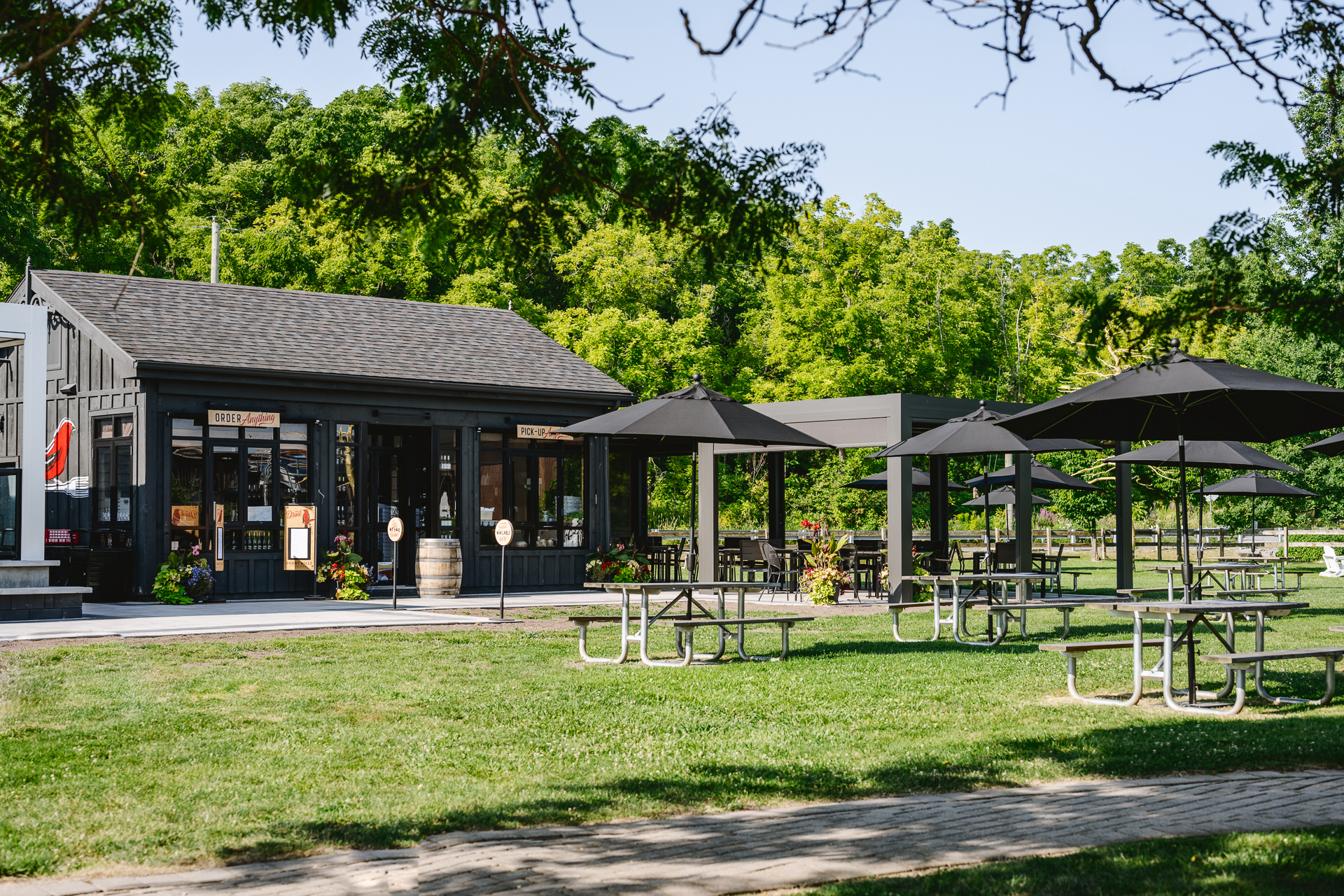
Henry of Pelham Outdoor Patio
Henry of Pelham, Short Hills Bench
Three brothers Paul, Matthew and Daniel Speck helped plant vines on their family’s property in the early 1980’s. As young teens, they never imagined their destiny to become owners of one of Ontario’s pioneering wineries, now called Henry of Pelham. Perhaps it was the act of hand-planting curved rows of Baco Noir vines that showed them the importance of respecting the land they farm.
Henry of Pelham sits in the southern tier of the Short Hills Bench, Niagara’s smallest sub-appellation. The bulk of the land serves as a catchment area for a large watershed, so the winery uses bio-filters in its ponds to ensure clean water circulates around the property. Owners have made investments in reforestation while leaving 11% of their total acreage as woods. Efforts to create a wildlife-friendly environment have encouraged falcons to thrive, doing owners a favor in kind by scaring off grape-eating birds. Visitors can soak up the splendor of the Niagara Escarpment while enjoying local fare at the winery’s Short Hills Kitchen bistro.
Wines to Find: Cuvée Catharine Estate Blanc de Blancs ‘Carte Blanche’, Speck Family Reserve Riesling
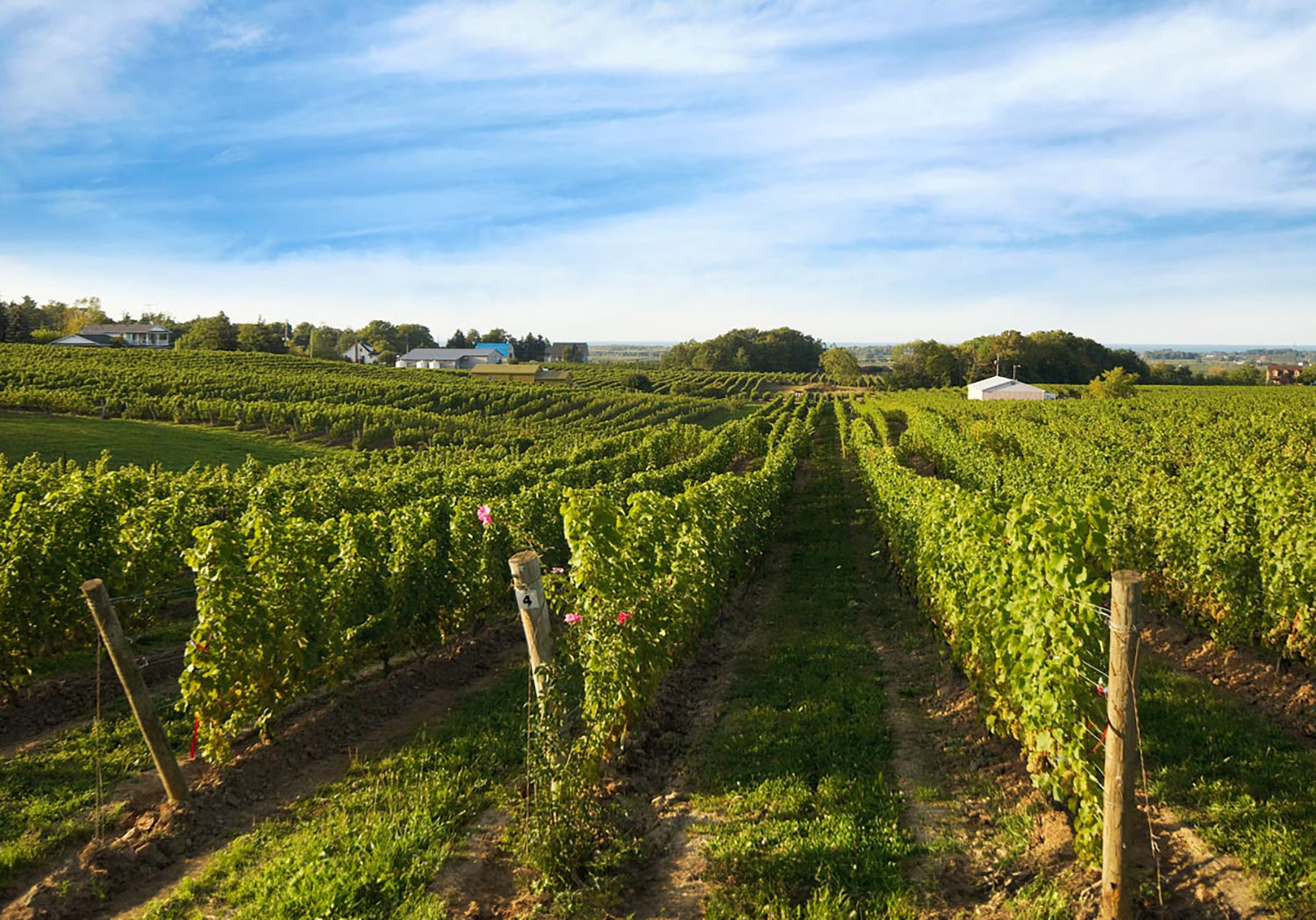
Tawse Estate Vineyards. Image courtesy of Carly Robyn Hillside
Tawse, Twenty Mile Bench
Nestled on the slopes of the Twenty Mile Bench sub-appellation, sits Tawse Winery, a family-owned estate known for quality winemaking. Founder Moray Tawse, a long-time wine lover with a fondness for Burgundy, purchased the Cherry Avenue property in 2000 with the belief the soils would yield great wine. With sustainability baked into the premise from day 1, the winery opened in 2005 with a modern, six-level gravity-flow design. Geothermal systems reduce energy needs and a wetland bio-filter increases water efficiency.
Soon after opening, Tawse purchased a nearby property and subsequently opened its sister winery, Redstone, in 2015, which features a locally-inspired restaurant. Dynamic cool-climate wines come from the 123 acres of organically certified vineyards shared by both wineries. Vineyard practices like minimal tillage and permanent cover crops contribute to a multitude of environmental benefits. Expect to find top examples from all of Niagara’s best varieties including traditional method sparkling wine. Certified by Ecocert and Sustainable Winegrowing Ontario.
Wines to Find: Tawse Quarry Road Chardonnay, Redstone Syrah
13th Street Winery, Creek Shores
Founded in 1998, 13th Street Winery is owned by two families – Whitty and Mann – with deep roots in Niagara. Surrounded by vineyards in the Creek Shores sub-appellation, the winery celebrates wine, art, and food like nowhere else in the region. The property is home to the John Mann Gallery, dedicated to celebrating Canadian art. A sculpture garden welcomes visitors to explore all of their senses. The winery is also home to a legendary bakery, known for Canada’s Best Butter Tarts.
13th Street Winery minimizes its environmental impact in numerous ways. A high-volume rainwater collection system and drought-tolerant landscaping reduce water consumption on site. Geothermal systems support heating and cooling during winemaking, while an old barn has new life as a roosting structure for migratory birds. These birds help manage vineyard pests. Certified by Sustainable Winegrowing Ontario.
Wines to Find: Gamay, Premier Cuvée 2018 Sparkling
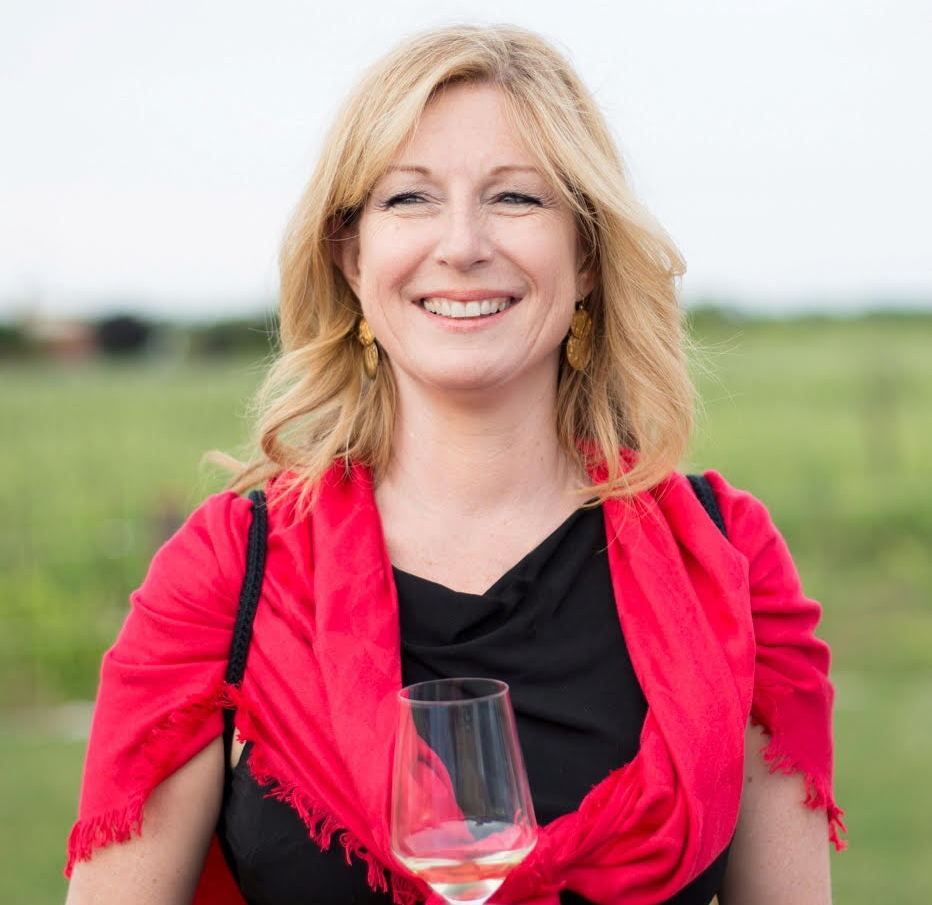
Magdalena is an international freelancer where wine, gastronomy and travel are integral in her life. While seeking experiences that express the essence of a place, she is drawn to those that benefit the planet. She makes tiny batches of wine herself for hands-on learning, is certified in sustainable tourism, judges wine at Decanter Wine Awards and has an affinity for retro cocktails. Follow Magdalena on IG @mkaiserwine.


